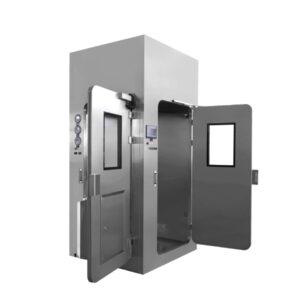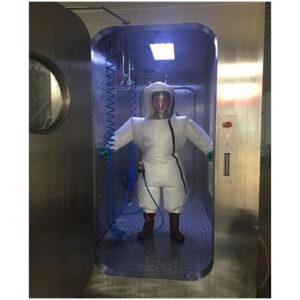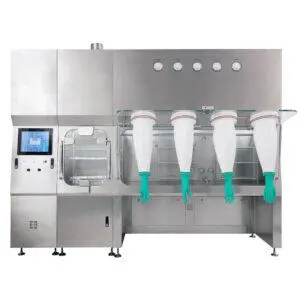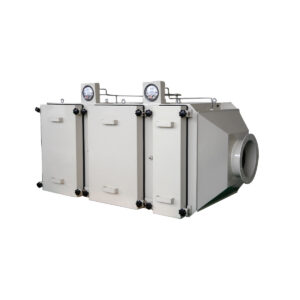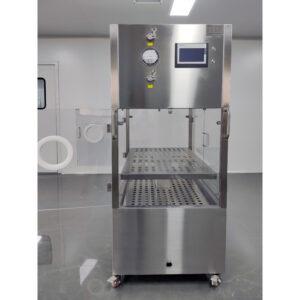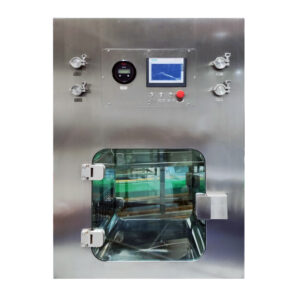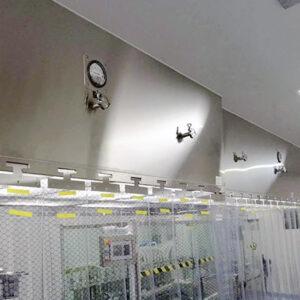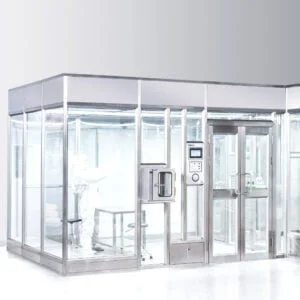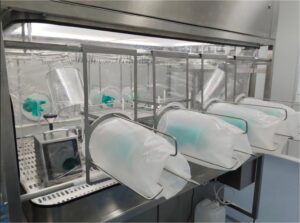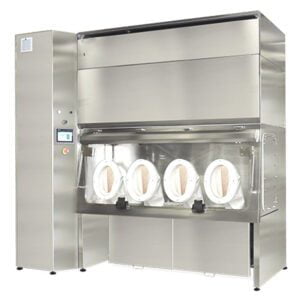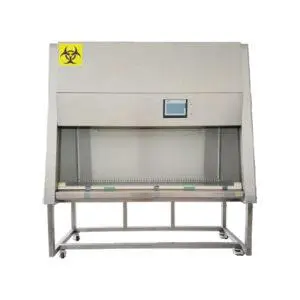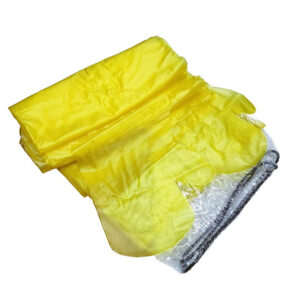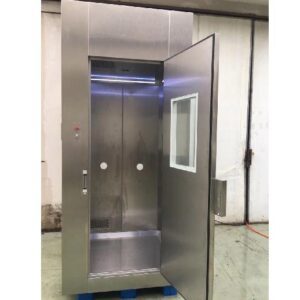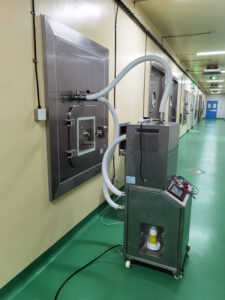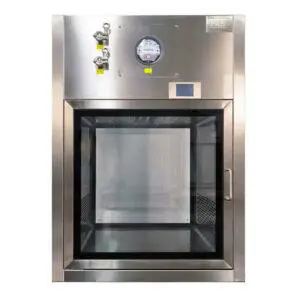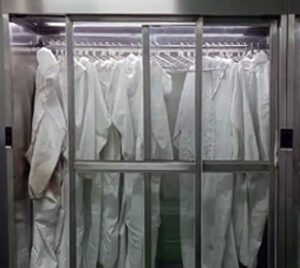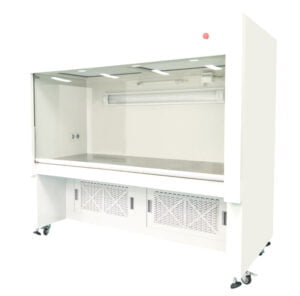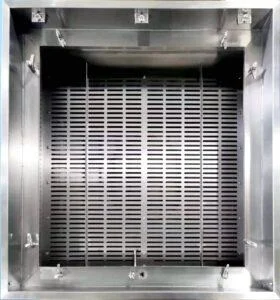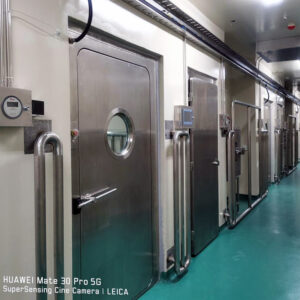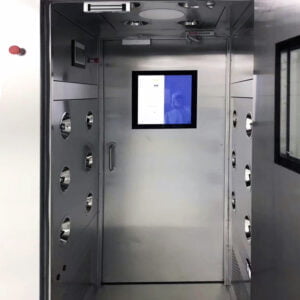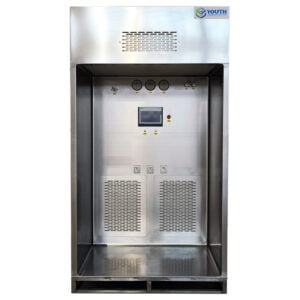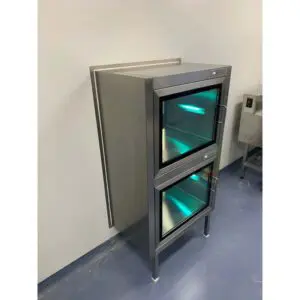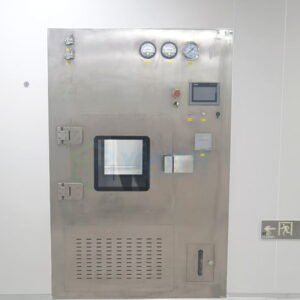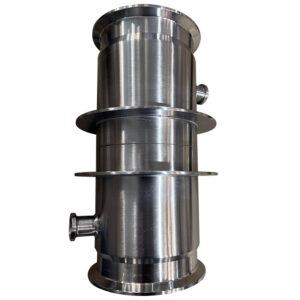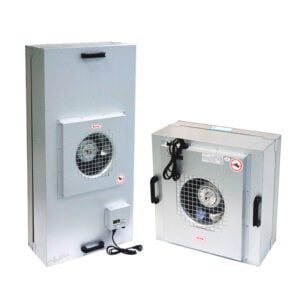In today’s world, where industries demand precision and cleanliness, Fan Filter Units (FFUs) have emerged as essential components. These units play a pivotal role in maintaining controlled environments, such as cleanrooms, laboratories, and manufacturing facilities, where air quality is paramount.
What is a Fan Filter Unit (FFU)?
At its core, a Fan Filter Unit is a sophisticated device designed to provide filtered air in a controlled and consistent manner. It consists of several key components:
1. Integrated Fan and Motor
The heart of an FFU is its integrated fan and motor. These components work in tandem to generate enough static pressure to overcome any resistance in the system, ensuring a continuous and steady airflow.
2. High-Efficiency Particulate Air (HEPA) Filter
One of the most critical elements in an FFU is the HEPA filter. This filter is designed to trap and remove particles as small as 0.3 micrometers with remarkable efficiency. It ensures that the air passing through the FFU is virtually free of contaminants.
3. Pre-Filter
Before the air reaches the HEPA filter, it passes through a pre-filter. This pre-filter helps extend the lifespan of the HEPA filter by capturing larger particles and preventing them from clogging the HEPA filter prematurely.
How FFUs Work
FFUs function as filtered laminar flow diffusers. They draw in ambient air, pass it through the pre-filter, and then push it through the HEPA filter, where it gets thoroughly cleaned. The filtered air is then distributed evenly into the controlled environment in a laminar flow pattern, ensuring a particle-free atmosphere.
Advantages of Using FFUs
The utilization of FFUs offers several advantages:
1. Precision Control
FFUs allow for precise control over air quality and cleanliness, making them ideal for industries that require stringent environmental conditions.
2. Energy Efficiency
With their integrated fan and motor, FFUs are energy-efficient devices, consuming only the necessary amount of power to maintain the desired airflow and air quality.
3. Easy Maintenance
Many FFUs are designed for easy maintenance. Some even feature room-side replaceable filters, minimizing downtime during servicing.
FFUs in Different Industries
FFUs find applications in various industries, including pharmaceuticals, electronics manufacturing, biotechnology, and semiconductor manufacturing. They play a crucial role in preventing contamination and ensuring product quality.
Conclusion
Fan Filter Units are the unsung heroes of clean and controlled environments. Their ability to deliver filtered air consistently and efficiently makes them indispensable in industries where air quality is of utmost importance.
FAQs
1. Are FFUs only used in cleanrooms?
No, FFUs are used in various industries where maintaining air quality is crucial, including cleanrooms, laboratories, pharmaceutical manufacturing, and more.
2. How often should FFU filters be replaced?
The frequency of filter replacement depends on factors such as usage, contamination levels, and manufacturer recommendations. It’s typically done periodically to ensure optimal performance.
3. Can FFUs be customized for specific applications?
Yes, many manufacturers offer customizable FFUs to meet the unique requirements of different industries and applications.
4. Are FFUs energy-efficient?
Yes, FFUs are designed to be energy-efficient, as they only consume the necessary amount of power to maintain the desired airflow and air quality.
5. Do FFUs contribute to environmental sustainability?
Yes, FFUs contribute to sustainability by ensuring that controlled environments are energy-efficient and maintain the required air quality standards, reducing waste and energy consumption.
Related Contents:
- Mastering Clean Room Technology with Fan Filter Units (FFUs)
- How to choose FFUs and AHUs?
- Bag-In/Bag-Out (BIBO) Systems: Operation and Maintenance Guide
- Understanding the Mechanics of Fan Filter Units: A Detailed Guide
- How Fan Filter Units Facilitate Dynamic Airflow Management in Cleanrooms
- Fan Filter Units: Balancing Efficiency and Cost-Effectiveness
- Maximizing Cleanroom Efficiency with High-Performance Fan Filter Units
- Exploring the Versatility of Fan Filter Units Across Different Sectors
- Advanced Features of Modern Fan Filter Units for Optimal Performance


